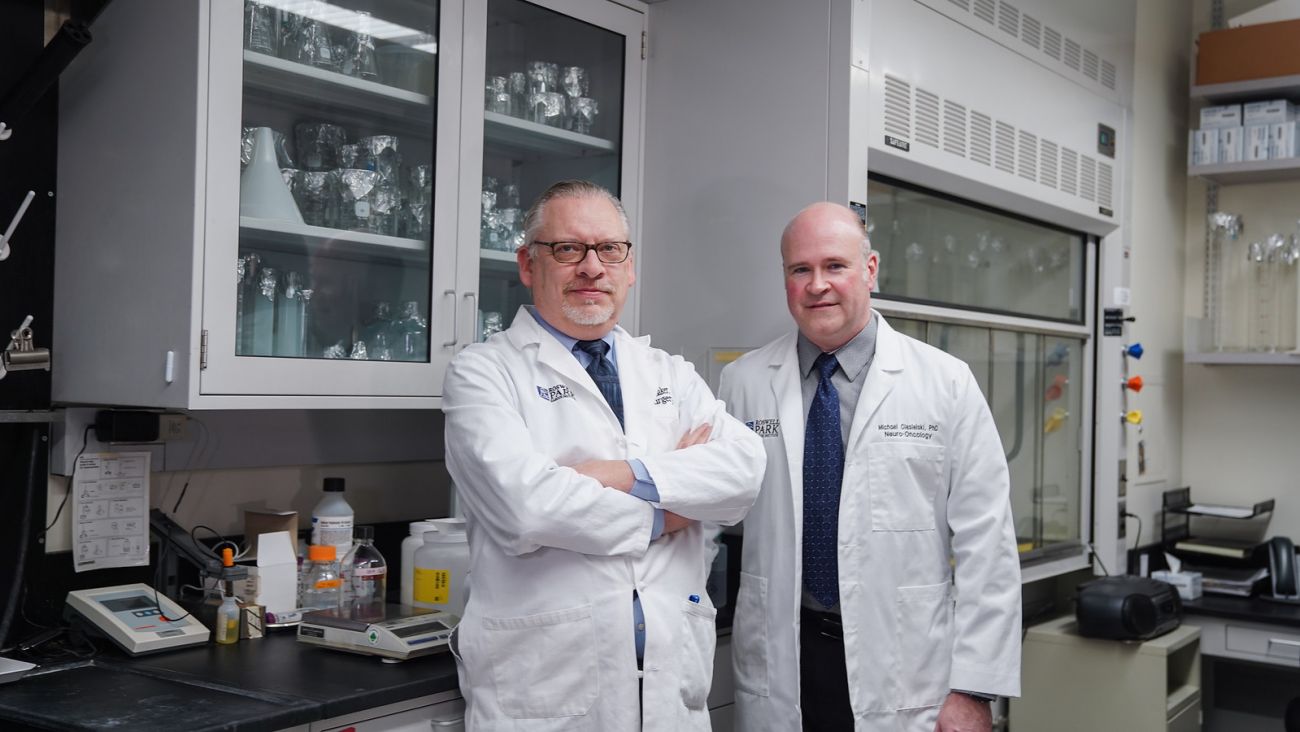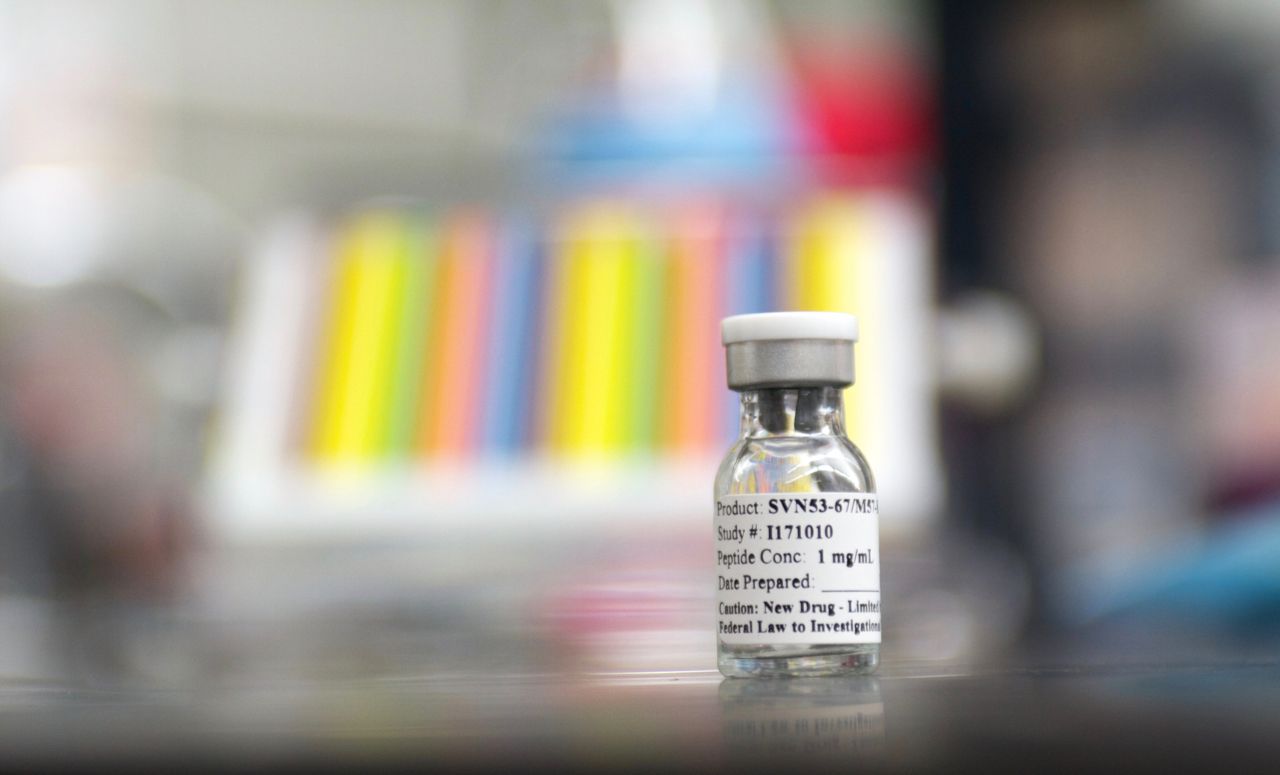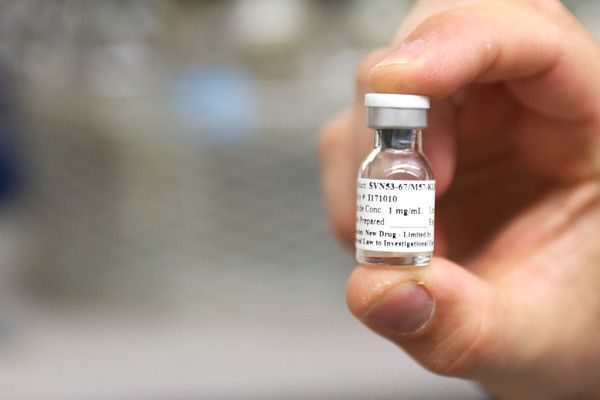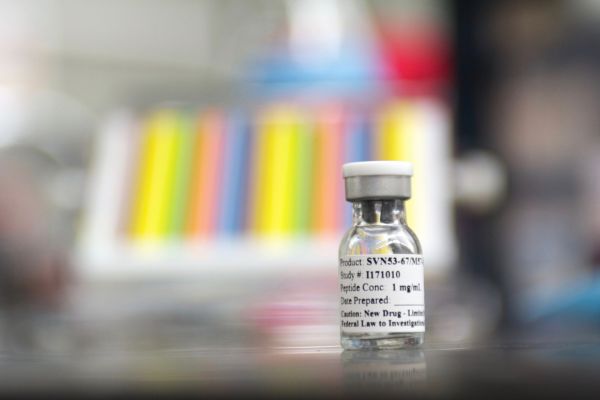While common vaccines such as the measles or flu shot help prevent disease, cancer treatment vaccines are a type of therapeutic immunotherapy, meaning that they can treat disease that already exists and possibly prevent its recurrence.
How cancer vaccines work
Cancer treatment vaccines work by initiating an immune response to certain tumor markers, called antigens, which are present on the surface of or inside the cancer cells. This immune response also educates your immune cells (such as lymphocytes or T cells) and/or produces antibodies that can attack and destroy tumor cells.
The first cancer treatment vaccine to be FDA-approved was Provenge (sipuleucel-T) which is used to treat men with advanced prostate cancer.
Roswell Park offers cancer vaccines, either through clinical trials or FDA approved usage, for the following cancer types:
- Prostate (Provenge®, FDA-approved)
- Glioblastoma (SurVaxM)
- Non-small cell lung cancer (CIMAvax®)
- Neuroendocrine tumors (SurVaxM)
- Pediatric brain tumors (SurVaxM)
- Triple negative breast cancer
- Squamous cell head and neck cancer
- Oropharyngeal
- Ovarian
Brain cancer vaccine developed at Roswell Park
A promising new cancer vaccine to treat glioblastoma, an aggressive type of brain tumor, was created here at Roswell Park. Early studies of the vaccine, called SurVaxM, found it resulted in significantly longer than expected survival. Other clinical studies are ongoing. SurVaxM initiates the body’s response to a marker called survivin. Glioblastomas and most other types of cancer produce the survivin protein which helps the cancer cells survive. SurVaxM stimulates the patient’s immune system to produce white blood cells and antibodies that can recognize and attack any tumor cells that contain survivin, thus shutting down the cancer’s use of survivin as a lifeline.
The phase 2B randomized SURVIVE trial is currently underway at Roswell Park and other centers, open to newly diagnosed adult glioblastoma patients who meet eligibility criteria. SurVaxM is also being evaluated in early-phase studies of adult patients with multiple myeloma (study not currently recruiting) and some neuroendocrine tumors and in pediatric patients with some types of brain tumors.




